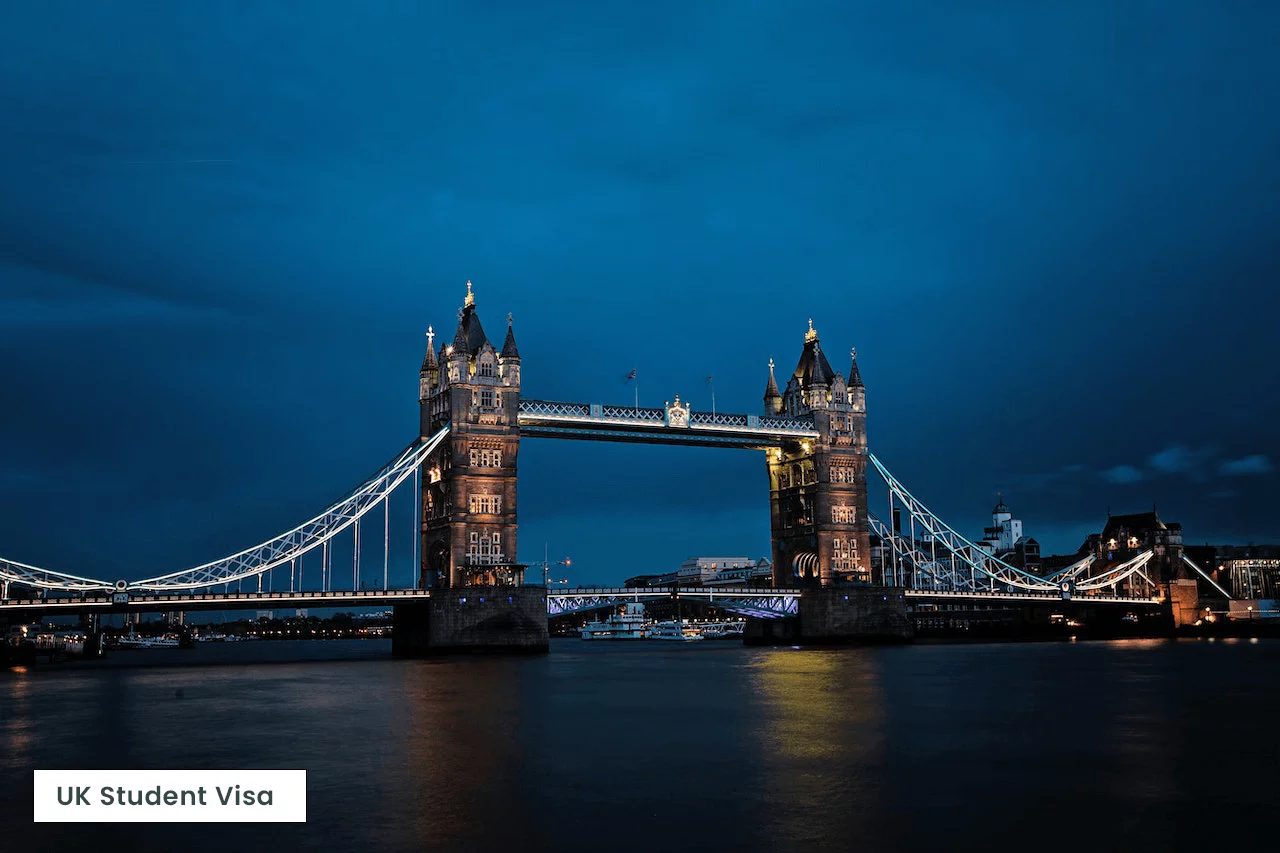The UK has always been a top choice for international students because it has excellent universities, a lot of culture, and a lively student life. Studying in the UK gives you valuable skills that can help you get a job anywhere.
This guide will explain why the UK is a great place to study and give you an overview of how to get a student visa for the UK.
Different kinds of study visas for the UK
Getting the proper visa is essential for a smooth and happy start to your life in the UK. The Student Visa, Child Student Visa, and Short-term Study Visa are the three main types of UK study cards we will discuss here.
Student Visa (used to be called Tier 4 General Student Visa)
The Student Visa is the most popular type of visa for international students in the UK who want to study full-time for a degree, diploma, or certificate. You must be 16 years old and have a guaranteed offer from a licensed student sponsor, like a college or university, to get this visa. You must also show that you can speak and write English well and have enough money to pay for your education and living costs.
Most of the time, the Student Visa covers the whole course plus a short break before and after the course. It also lets you work part-time while in school, though there may be rules that apply to your course and company.
Child Student Visa
Children from other countries between the ages of 4 and 17 who want to go to an independent school in the UK can get a Child Student Visa. As for the Student Visa, candidates must have a firm offer from a licensed student sponsor and show proof that they can pay for the course of study.
The length of a child’s visa matches the size of the course plus one month before and four months after the course. The age range is 4 to 15. For people 16 to 17, the visa lasts for the length of the course plus one month before and six months after the course.
Short-term Study Visa (for learning the English language in the UK)
This type of study visa is for people over 16 who want to take a short course, like an English language programme, that doesn’t last more than six months (or up to eleven months for English language classes). You don’t need a student sponsor for this visa but a guaranteed offer from a recognised school.
In contrast to the Student Visa, the Short-term Study Visa does not allow work, whether paid or unpaid and cannot be renewed. You have to leave the UK when your course is over.
How to Apply for a Student Visa for the UK
Some of these are:
- A passport or legal travel document
- Your CAS reference number
- Supporting documents like bank statements or letters of sponsorship
- Proof that you can speak and write English well (if needed)
- Tuberculosis test results from a medical facility that has been cleared (if required)
- Any other paperwork that is necessary for your unique situation
- Make sure that all of the papers you need are in English or come with an official copy.
- Biometric data and an appointment for a visa
You’ll need to make an appointment for a visa after you’ve sent in your online application. At this meeting, you will give your biometric information, such as fingerprints and a digital photo. You will also need to bring supporting papers for verification.
Decision-making and processing time
How long it takes to get a UK student visa depends on where you apply and the time of year. You’ll usually hear back within 3–4 weeks of your meeting. However, this time range may be extended during busy times or if more information is needed. Make sure you apply a long time before the start of your study to give the application enough time to be processed.
If your application for a UK student visa is approved, you will be given a visa that covers the length of your course plus a short grace time before and after the course.
Sponsorship for a UK study visa
A sponsor for a UK study visa is an educational institution, like a university or college, that the UK government has permitted to take in international students. Sponsorship is when a licence backs your application for a student visa by giving you a CAS, which stands for “Confirmation of Acceptance for Studies.” The CAS tells you that you have been offered a spot on a course without any conditions and that the school thinks you have the qualifications, language skills, and money to finish your studies.
Licensed student sponsors
Schools that the UK government licences to take in international students are called licenced student sponsors. They are in charge of keeping an eye on your attendance and academic progress and ensuring you follow your visa rules. If your situation changes or they have doubts about your status, they must tell the UK government. It is essential to choose a school that is a licensed student supporter if you want to get a student visa. The UK government has a Register of Licenced Sponsors, which lists licenced student sponsors.
UK Visa Sponsorship Management System
Licenced sponsors can use the UK Visa Sponsorship Management System (SMS) to keep track of their duties and send the UK government information about the students they are sponsoring. Sponsors can give students CAS numbers, keep track of their attendance, report changes in their student’s lives, and keep records linked to their sponsorship duties through the SMS.
Shifting to a different category of visa
After finishing their studies, some holders of UK student visas may want to switch to another type of visa, such as the Graduate Immigration Route, the Skilled Worker Visa, or the Global Talent Visa. To accomplish this, candidates must be eligible for the new visa category and file a fresh application, usually before the expiration of their present visa.






